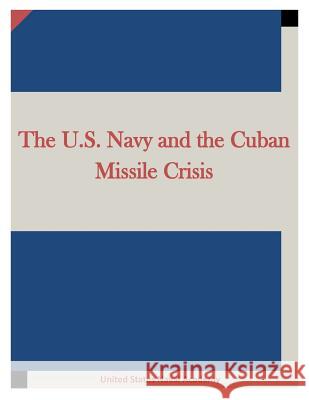The U.S. Navy and the Cuban Missile Crisis » książka
The U.S. Navy and the Cuban Missile Crisis
ISBN-13: 9781511666886 / Angielski / Miękka / 2015 / 202 str.
This study examines the traditional interpretation of the 1962 Cuban Missile Crisis and the Navy's quarantine of the island A bevy of Political scientists, and even a few historians, have complied and impressive literature on the Cuban Missile Crisis, but most accounts draw heavily on the memoirs of former Kennedy insiders, especially Robert Kennedy and Arthur Schlesinger, Jr. Based on recently declassified records and Interviews with participants, this study corrects some of the misinterpretation of naval operations, reveals new evidence about U.S. intelligence, and throws into doubt the Kennedy/Schlesinger account. Based on intelligence gleaned from communications intercepts, Kennedy was alerted in early June t.o Soviet Premier Khrushchev's plan to deploy ballistic missiles in Cuba. This intelligence was confirmed by the subsequent Soviet sealift effort, communications intercepts, and CIA agents on the island. Yet, Kennedy did little to prepare his administration to deal with the dilemma. He moved forcefully to restrict intelligence on the buildup, but did nothing to prevent it. Kennedy moved only in mid-October when he had irrefutable photographs of the missiles. He imposed a limited naval blockade around Cuba and coerced the Soviets to remove the missiles through frantic back-door diplomacy. This included a trade for American Jupiter missiles in Turkey. This study considers several issues related to the development of intelligence before and during the crisis, command and control of naval operations, and the Navy's ASW operations."
Zawartość książki może nie spełniać oczekiwań – reklamacje nie obejmują treści, która mogła nie być redakcyjnie ani merytorycznie opracowana.











